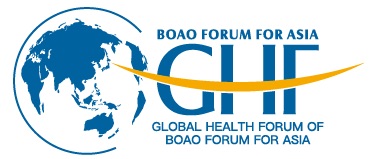Health-related social stigma is the labeling, profiling, discrimination, differential treatment, and/or loss of social status of a specific population because of their perceived association with a disease or health condition.

Such social stigma and discrimination can negatively affect not only the patients themselves, but often implicate their caregivers, family and friends, and local communities. People who are not infected but have similar symptoms may also be stigmatized.
The current 2019 coronavirus outbreak has resulted in a variety of social stigmatization and discrimination in several countries: against specific ethnic or national groups; against people living in or from certain cities, provinces or countries; and against people who are believed to be infected with the virus.
What will be the impact of these behaviors?
The impact of social stigmatization can be deadly. It can accelerate, rather than slow, the spread of the virus in some cases. Whether in China or in other countries, social stigma can lead to more serious health and social problems, making the epidemic more difficult to control.
Time and time again, we have witnessed the negative health effects of stigma, such as stigmatization of people with HIV, tuberculosis, hepatitis, and mental illness, to name a few.
Social stigma can worsen health problems by causing people to hide their illnesses to avoid discrimination, delay access to medical care, fail to cooperate with community emergency efforts, and gradually cause people to abandon healthy lifestyles.
If we are not against the social stigma caused by 2019 coronavirus disease now, it may become more entrenched in society, which in turn will affect all social groups, especially vulnerable people who are already suffering from marginalization and unfair treatment.
What actions should we take?
The way in which the information about Coronavirus Disease 2019 is reported is critical, and appropriate practices can help people take timely and effective action to combat the outbreak and curb the spread of fear and social stigma. We need to create a good atmosphere for people to discuss the outbreak and its impact openly, honestly, supportively and effectively.
"We must stand together to stop and call out all stigma and discrimination regarding 2019 coronavirus disease, whether at the global or regional level, including against people in China or any country at risk, against people in Wuhan or Hubei, and against people with 2019 coronavirus disease."
--Mr. Nicholas Rosellini, UN Coordinator in China
and Dr. Gauden Galea, WHO Representative in China
We all need to work together to be empathetic with patients, increase understanding of the disease itself, and take pragmatic and effective measures. In this way, everyone, regardless of nationality, race, gender or geography, can ensure the safety and health of themselves and their loved ones.



 News
News
 Partner application
Partner application Download
Download Hot News
Hot News









